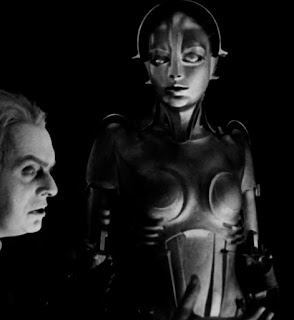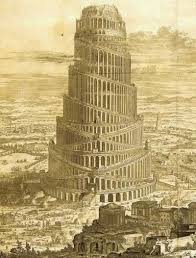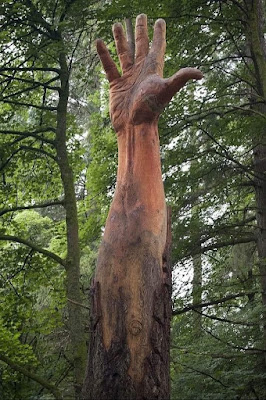El fallecimiento de la periodista Olatz Vazquez ha generado un gran impacto en redes sociales donde compartía con imágenes y texto su enfermedad. Durante meses documentó sus vivencias con un cáncer gástrico diagnosticado en un estado muy avanzado. La aparición de los primeros síntomas durante la pandemia con la sanidad colapsada impidió haber actuado antes. Para los cientos de miles de seguidores que han acompañado su proceso sin duda no ha sido fácil ser testigos del deterioro físico de una persona joven que era transmitido en directo y acompañado con fotografías de enorme calidad y crudeza.
Olatz tomó la decisión de salir del armario de los enfermos graves y contarlo, según sus propias palabras no lo hizo por valor sino por necesidad personal. Sin duda ha convertido sus últimos días en una pedagogía de la vida y de la muerte. Todos vamos a morir, los jóvenes también, parece decirnos. Una muerte que nuestra sociedad esconde por miedo, fealdad o ser antieconómica. La escondemos de los niños pero también del resto, se aísla a los pacientes terminales, se los separa, de alguna manera se los invisibiliza. Esta reacción dificulta el proceso de integrar la enfermedad, la decrepitud y la muerte como consubstanciales a la vida y dar el paso de asumirlas como propias cuando llegan. Porque llegar llegan a todos antes o después. El hecho de no asumirlas está haciendo de la salud un bien de consumo y de la sanidad una industria más, en perjuicio de todos.
La presión asistencial que soportan los profesionales sanitarios no deja de subir y en consecuencia la sobreactuación de los mismos tampoco. Estamos generando espirales de sobrediagnóstico y sobretratamiento que generan más dolor, sufrimiento y muerte que la que soportaban nuestros padres o abuelos. Estamos olvidando que el malestar y los pequeños problemas de salud son algo cotidiano que no precisa intervención especializada. Y que para los problemas de salud graves más nos vale tener un buen médico y enfermera de cabecera cerca que nos conozcan y sean capaces de ayudarnos en la navegación hospitalaria y en el regreso a casa posterior.
La posibilidad de morir por un diagnóstico tardío nos aterra. Nuestra expectativa es que la moderna medicina nos salve de prácticamente cualquier cuestión que podamos sufrir. Llegar tarde a un diagnóstico y no poder hacer nada es un fracaso de la técnica, no debería suceder. Por eso preferimos pagar seguros privados, someternos a todas las pruebas diagnósticas posibles y a todo tratamiento que nos ofrezcan obviando que el exceso en medicina es ya la tercera causa de muerte en Estados Unidos. La yatrogenia es mucho más mortal que los diagnósticos tardíos. Pero nadie documenta en redes sociales su muerte por una complicación de una prueba, un tratamiento o una cirugía, habitualmente no da tiempo.
Por eso cada vez hay más ciudadanos que pagan un seguro de salud privado con la esperanza de que si enferman estarán más protegidos, serán atendidos antes y tendrán acceso a más pruebas y tratamientos. Olvidamos considerar la sanidad un servicio público esencial prioritario que nos defienda a todos por igual. Vemos cómo se deteriora y en lugar de buscar soluciones aplicamos el sálvese quién pueda y permitimos su derrumbe pese a que seamos los principales damnificados quizá no hoy pero con seguridad mañana.
Ni siquiera una pandemia como la que actualmente sufrimos ha hecho que se refuerce la sanidad. Los centros de salud siguen bloqueados, las urgencias llenas, los hospitales rebosando. No hay más recursos pero tampoco voluntad social para usarlos menos. Se acude a ellos por cualquier cuestión menor ocasionando que su bloqueo sea pernicioso para los que de verdad están graves o mortal para el que sufre procesos avanzados.
El testimonio de Olatz nos recuerda la fragilidad de la vida. La importancia de ser cuidados y atendidos cuando estamos enfermos. Para ello necesitaremos quien nos cuide. Y probablemente una sanidad que nos apoye. Tomar conciencia para hacer un uso adecuado de los servicios sanitarios es tan importante como financiarlos adecuadamente y permitir que sus profesionales trabajen sin excesivas sobrecargas para que puedan ofrecer calidad técnica y humana.
The fear of death due to a late diagnosis.
The death of journalist Olatz Vazquez has generated a great impact on social networks where she shared her illness with images and text. For months she documented her experiences with gastric cancer diagnosed at a very advanced stage. The appearance of the first symptoms during the pandemic when the health system collapsed prevented earlier action. For the hundreds of thousands of followers who have accompanied her process, it has certainly not been easy to witness the physical deterioration of a young person, which was transmitted live and accompanied by photographs of enormous quality and crudeness.
Olatz took the decision to come out of the wardrobe of the seriously ill and to tell about it, according to her own words, not out of courage but out of personal necessity. She has undoubtedly turned her last days into a pedagogy of life and death. We are all going to die, young people too, he seems to be telling us. A death that our society hides out of fear, ugliness or because it is uneconomical. We hide it from children but also from the rest, we isolate terminal patients, we separate them, we make them somehow invisible. This reaction hinders the process of integrating illness, decrepitude and death as consubstantial to life and taking the step of assuming them as one's own when they arrive. Because they come to everyone sooner or later. Failure to accept them is turning health into a consumer good and healthcare into just another industry, to the detriment of all.
The pressure on healthcare professionals is constantly increasing, and as a result, so is their over-responsiveness. We are generating spirals of over-diagnosis and over-treatment that generate more pain, suffering and death than our parents or grandparents endured. We are forgetting that discomfort and minor health problems are everyday occurrences that do not require specialised intervention. And that for serious health problems it is better to have a good family doctor and nurse close by who know us and are able to help us through the hospital journey and the subsequent return home.
The possibility of dying from a late diagnosis terrifies us. Our expectation is that modern medicine will save us from virtually any issue we may suffer. To be late for a diagnosis and not be able to do anything is a failure of technique, it should not happen. That is why we prefer to pay for private insurance, undergo every possible diagnostic test and treatment offered, ignoring the fact that medical overkill is already the third leading cause of death in the United States. Iatrogenesis is far more deadly than late diagnosis. But no one documents their death from a complication of a test, treatment or surgery on social media - there is usually not enough time.
That is why more and more citizens are paying for private health insurance in the hope that if they fall ill they will be better protected, treated earlier and have access to more tests and treatments. We forget to consider healthcare as a priority essential public service that defends us all equally. We see it deteriorating and instead of looking for solutions we apply the every man for himself approach and allow it to collapse even though we are the main victims, perhaps not today but certainly tomorrow.
Not even a pandemic like the one we are currently experiencing has led to a strengthening of the health system. Health centres are still blocked, emergency rooms are full, hospitals are overflowing. There are no more resources, but neither is there the social will to use them less. People go to them for any minor matter, causing their blockage to be pernicious for those who are really serious or deadly for those suffering from advanced processes.
Olatz's testimony reminds us of the fragility of life. The importance of being looked after and cared for when we are ill. For this we need someone to take care of us. And probably a health system that supports us. Being aware of the importance of making proper use of health services is as important as financing them adequately and allowing their professionals to work without excessive overload so that they can offer technical and human quality.

害怕因晚期诊断而死亡。
自动翻译,请原谅错误。
记者奥拉茨-巴斯克斯的死亡在社交网络上产生了巨大的影响,她在那里用图片和文字分享了她的病情。几个月来,她记录了她被诊断为胃癌晚期的经历。在大流行期间,当卫生系统崩溃时,第一批症状的出现妨碍了更早的行动。对于伴随着她的过程的数十万追随者来说,见证一个年轻人的身体恶化当然不容易,这种恶化是现场传送的,并伴有质量极高的照片,而且很粗俗。
奥拉茨决定从重病患者的衣柜里出来,并讲述了这件事,根据她自己的说法,不是出于勇气,而是出于个人需要。她无疑将自己最后的日子变成了生与死的教育学。我们都会死,年轻人也一样,他似乎在告诉我们。我们的社会出于恐惧、丑陋或因为不经济而隐藏了一种死亡。我们向孩子们隐瞒,但也向其他人隐瞒,我们将临终病人隔离,我们将他们分开,我们使他们在某种程度上不可见。这种反应阻碍了将疾病、衰弱和死亡作为生命的组成部分,并在它们到来时采取将其视为自己的步骤的过程。因为他们迟早会来到每个人身边。不接受这些,就是把健康变成了一种消费品,把医疗卫生变成了另一个行业,对所有人都不利。
医护人员的压力不断增加,因此,他们的过度反应也是如此。我们正在产生螺旋式的过度诊断和过度治疗,产生比我们的父母或祖父母所承受的更多的痛苦、折磨和死亡。我们正在忘记,不适和小的健康问题是日常发生的事情,不需要专门的干预。对于严重的健康问题,最好有一个好的家庭医生和护士在身边,他们了解我们,能够帮助我们度过医院之旅和随后的回家。
晚期诊断导致死亡的可能性使我们感到恐惧。我们的期望是,现代医学将把我们从几乎任何可能遭受的问题中拯救出来。迟到的诊断和不能做任何事情是技术的失败,不应该发生。这就是为什么我们宁愿支付私人保险,接受每一个可能的诊断测试和提供的治疗,无视医疗过度已经是美国第三大死亡原因的事实。诱发因素远比晚期诊断更致命。但是没有人在社交媒体上记录他们因测试、治疗或手术的并发症而死亡的情况--通常没有足够的时间。
这就是为什么越来越多的公民支付私人健康保险,希望如果他们生病,他们将得到更好的保护,更早的治疗,并有机会获得更多的测试和治疗。我们忘记了将医疗保健视为优先的基本公共服务,平等地捍卫我们所有人。我们看到它在恶化,而不是寻找解决方案,我们采用人人为我的方法,让它崩溃,尽管我们是主要受害者,也许不是今天,但肯定是明天。
甚至像我们目前正在经历的那种大流行病也没有导致卫生系统的加强。保健中心仍然被封锁,急诊室满员,医院人满为患。没有更多的资源,但也没有减少使用资源的社会意愿。人们为任何小事去找他们,导致他们的堵塞对那些真正严重的人来说是有害的,对那些患有高级过程的人来说是致命的。
奥拉兹的证词提醒我们生命的脆弱。当我们生病时,被照顾和关心的重要性。为此,我们将需要有人来照顾我们。可能还有一个支持我们的卫生系统。意识到适当利用卫生服务的重要性,与为其提供充足的资金并允许其专业人员在不过度超负荷的情况下工作同样重要,以便他们能够提供技术和人力质量。























